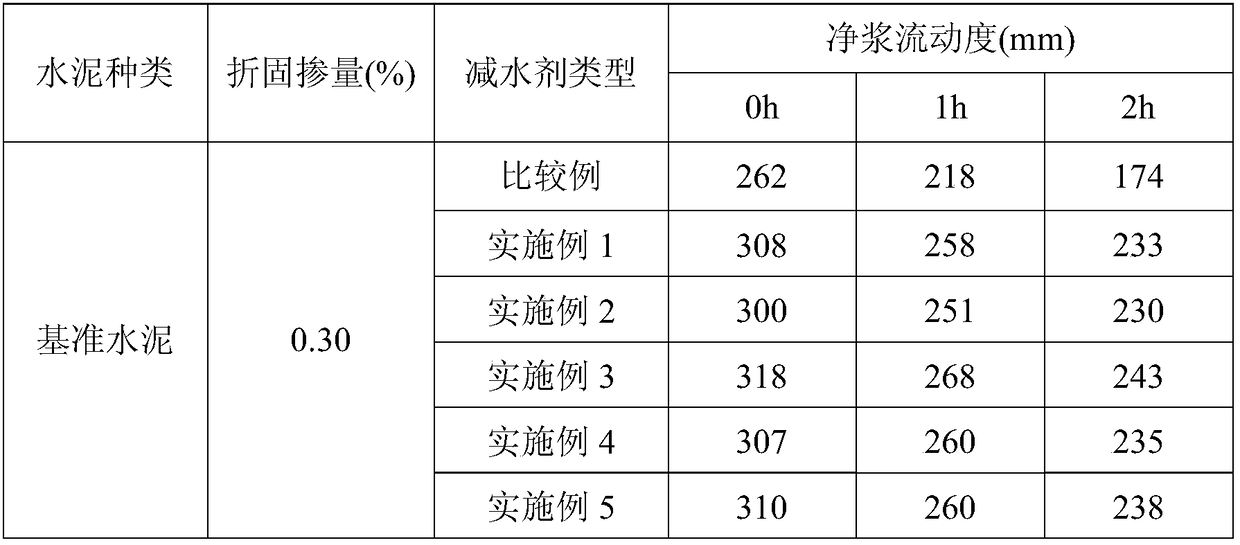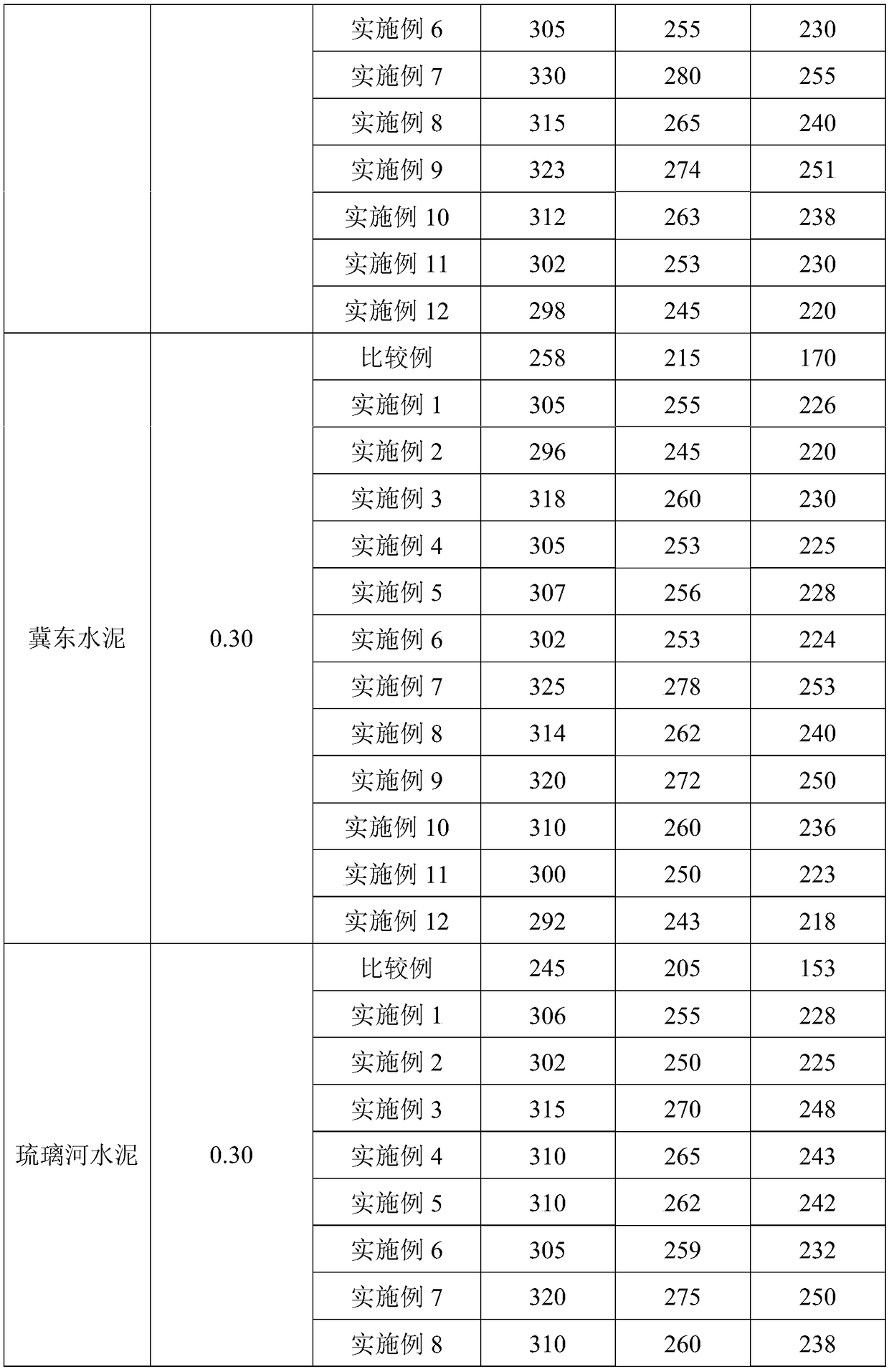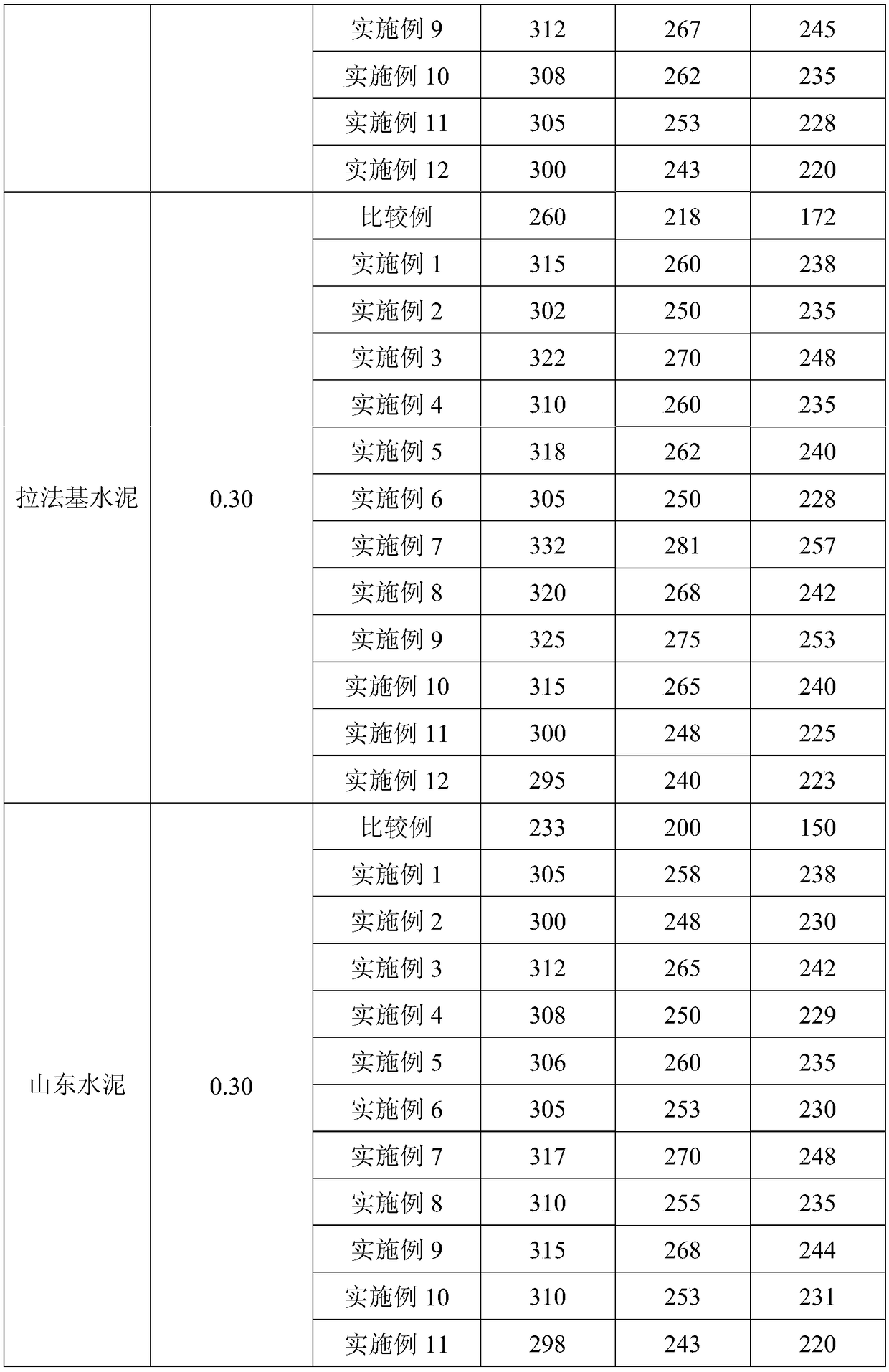Method for preparing polycarboxylate water-reducer by grafting cationic side chain with modified isocyanate of main chain
A technology of isocyanate and cation, applied in the field of cationic side chain polycarboxylate water reducer
- Summary
- Abstract
- Description
- Claims
- Application Information
AI Technical Summary
Problems solved by technology
Method used
Image
Examples
Embodiment 1
[0029] First, 4.8 g of acrylic acid, 3.87 g of fumaric acid, 1.07 g of acrylamide, 17.53 g of water, 1.57 g of mercaptoacetic acid, and 31.09 g of potassium persulfate aqueous solution with a mass fraction of 2% were sequentially added to the reactor, and stirring was performed at each feeding interval. The time was 15 minutes, and the temperature was raised to 55 ° C to carry out the polymerization reaction, and the reaction was carried out for 6 hours to obtain an aqueous solution of polycarboxylic acid-amide; The mixed solution of g sodium hydroxide, stirred for 5 minutes, and reacted at a constant temperature of 35°C for 1.5 hours to obtain polycarboxylic acid-isocyanate; 88.26g of methacryloyloxyethyldimethylbutyl was added to another reactor Ammonium bromide and 0.53 n-amyl alcohol were added, and 799.1 g of water was added to prepare an aqueous solution with a mass concentration of 10%. The reactor was filled with nitrogen for 4 times and deoxygenated for 15 minutes, the...
Embodiment 2
[0031] After the polycarboxylate water-reducing agent solution with a mass fraction of 50% obtained in Example 1 was stored at 6° C. for 20 days, its implementation effect was measured.
Embodiment 3
[0033] First, 0.66g of acrylic acid, 11.83g of itaconic acid, 1.85g of acrylamide, 28.6558g of water, 2.39g of sodium methacrylate sulfonate, 30g of 1% aqueous sodium persulfate solution were added to the reactor in sequence, and each time The feeding interval was stirred for 20 minutes, and the temperature was raised to 75 ° C to carry out the polymerization reaction, and the reaction was carried out for 4 hours to obtain an aqueous solution of polycarboxylic acid-amide; The mixed solution of sodium hypochlorite and 1.04g of sodium hydroxide was stirred for 12 minutes, and then reacted at a constant temperature of 50°C for 1 hour to obtain polycarboxylic acid-isocyanate; in another reactor, 73.56g of dimethyldiallyl chloride was added. Ammonium and 0.96 n-butanol, and then add 894.28 g of water to prepare an aqueous solution with a mass concentration of 7.69%. The reactor is filled with nitrogen for 5 times and deoxygenated for 10 minutes, and then sealed. Add 4.99 g of cerium...
PUM
 Login to View More
Login to View More Abstract
Description
Claims
Application Information
 Login to View More
Login to View More - R&D
- Intellectual Property
- Life Sciences
- Materials
- Tech Scout
- Unparalleled Data Quality
- Higher Quality Content
- 60% Fewer Hallucinations
Browse by: Latest US Patents, China's latest patents, Technical Efficacy Thesaurus, Application Domain, Technology Topic, Popular Technical Reports.
© 2025 PatSnap. All rights reserved.Legal|Privacy policy|Modern Slavery Act Transparency Statement|Sitemap|About US| Contact US: help@patsnap.com



